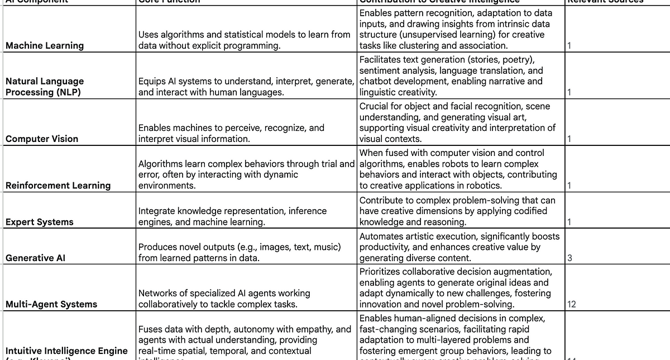Medium
1d
233

Image Credit: Medium
Google Deep Research: Creative Intelligence in AI & Leading Research Initiatives
- The report delves into Creative Intelligence in AI, defining it as the capacity for AI to generate novel, valuable, and contextually appropriate outputs that traditionally require human ingenuity.
- Generative AI and multi-agent systems are augmenting human capabilities, leading to productivity gains, but also introducing challenges like biases, intellectual property issues, and homogenization of creative output.
- Advocacy for a human-centric AI development approach emphasizes ethical principles like fairness, transparency, and accountability to ensure AI enhances human creativity rather than replacing it.
- AI encompasses machine learning, natural language processing, computer vision, and robotics, contributing to tasks that traditionally require human intellect.
- Advancements in AI applications such as virtual assistants and image recognition highlight progress in mimicking cognitive functions, paving the way for enhanced creative intelligence capabilities.
- Human intelligence, with components like creativity, reasoning, and problem-solving, is crucial for AI's development of creative potential.
- AI excels in automating tasks but currently relies on human prompting for novel conceptual breakthroughs, emphasizing a synergy between AI automation and human creativity.
- The report highlights a parallel between stages of human creativity and computational creativity, suggesting AI models not only mimic outcomes but also model the creative process itself.
- Creative Intelligence in AI aims to generate original ideas and innovate, contributing to the advancement of Artificial General Intelligence (AGI).
- Computational Creativity extends beyond content creation to replicate idea formation mechanisms, emphasizing collaboration between humans and machines for enhanced creativity.
Read Full Article
14 Likes
For uninterrupted reading, download the app